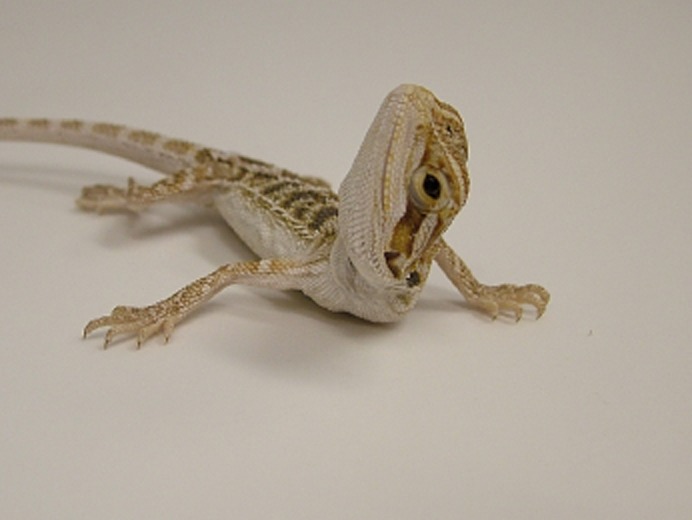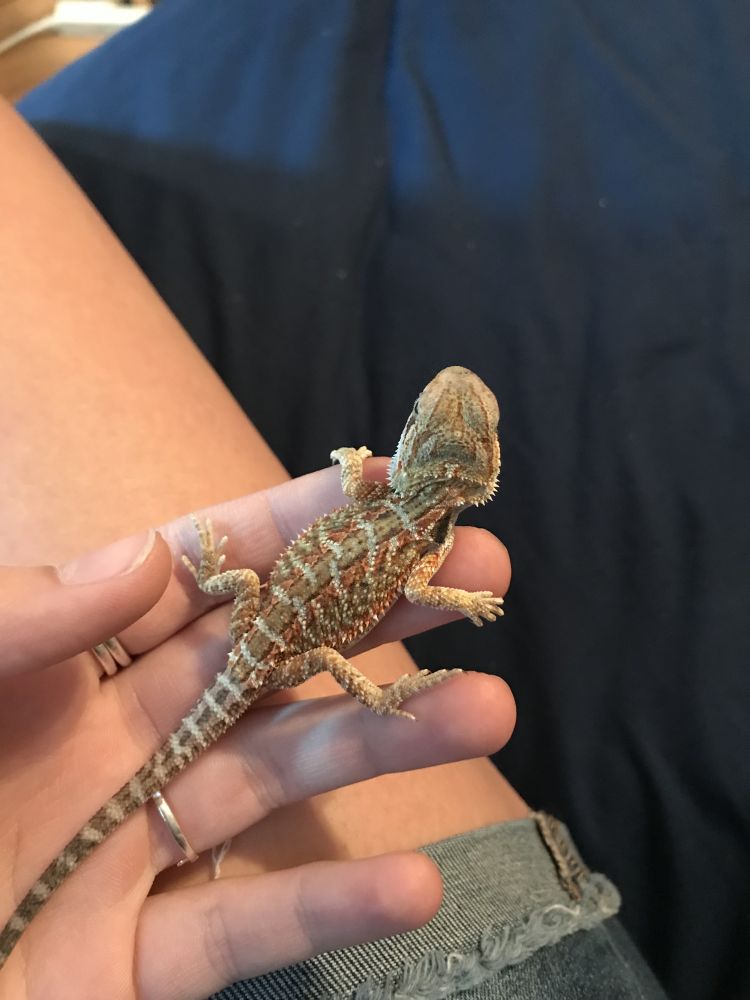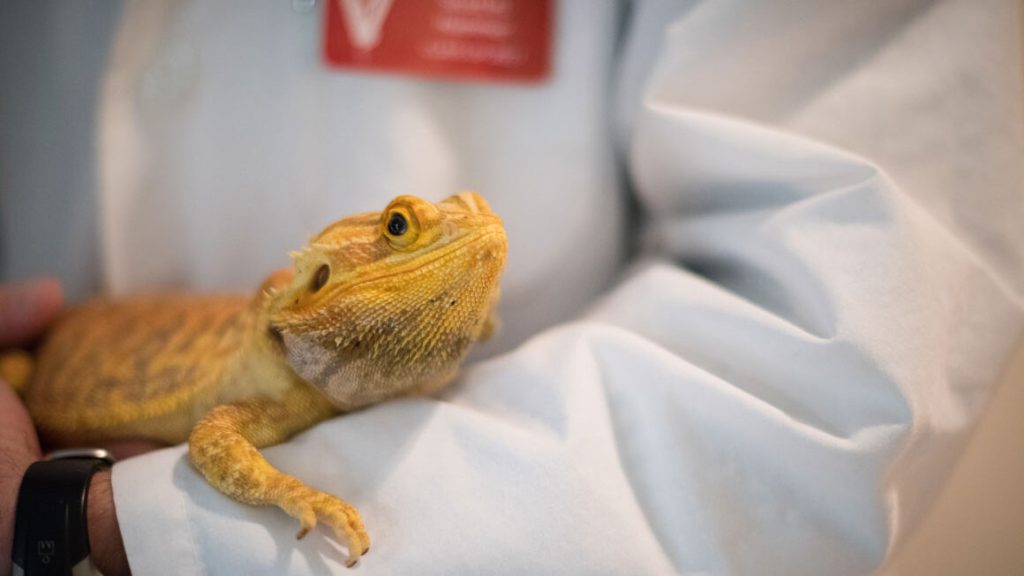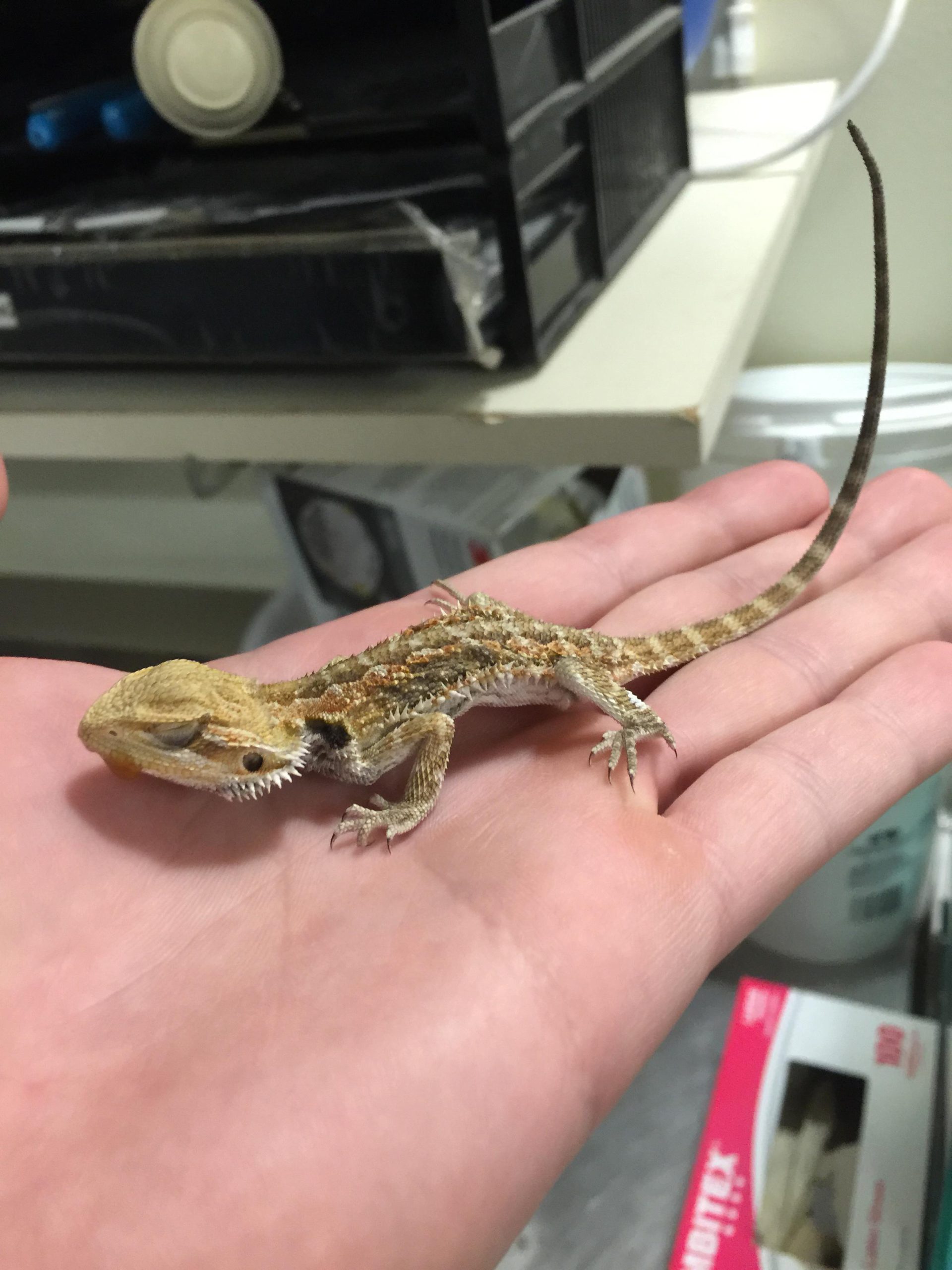If you witness your pet bearded dragon falling ill unexpectedly, you might mistake its symptoms for the flu.
Can Bearded Dragons Get The Flu? No, bearded dragons cannot get the flu like humans do. The flu is a sickness caused by viruses, and dragons are not affected by these viruses.
However, dragons can still get sick from other things, like bacteria or fungi.”If your dragon acts weird, barely moves, or struggles to breathe, see a lizard vet for help and keep it healthy.
Since bearded dragons don’t catch the flu, let’s talk about what can make them sick and how to keep your dragon healthy.
How to Recognize and Prevent Reptile Respiratory Infections in Bearded Dragons?

Respiratory infections in bearded dragons are different from the flu. They are mostly caused by bacteria or special viruses that affect reptiles. Some common ones are called Adenovirus and certain types of bacteria.
When a bearded dragon has a respiratory infection, it shows signs like struggling to breathe, having a runny nose, or feeling very tired. To prevent these infections, it’s important to take good care of your pet dragon by keeping its home warm and humid enough.
What Are the Signs of Illness in Bearded Dragons?

Bearded dragons can get sick, and they might show it in different ways. Look out for these signs:
Changes in Behavior
- Lethargy: If your dragon is usually active but suddenly becomes lazy, it could mean they’re not feeling well.
- Aggression: If your friendly dragon starts acting mean or stressed, something might be bothering them.
Appetite and Weight
- Decreased Appetite: If your dragon doesn’t want to eat, it might be a sign of a problem.
- Weight Loss: Keep an eye on your dragon’s weight; if they lose weight quickly, it’s a warning.
Respiratory Issues
- Labored Breathing: If your dragon is having trouble breathing, it could mean they have a respiratory infection.
- Nose or Mouth Discharge: Weird stuff coming from their nose or mouth might mean they’re not feeling well.
Digestive Problems
Changes in how they poop can show if there’s a digestive issue or parasites. Difficulty pooping is a serious problem.
Skin and Eyes
- Skin Changes: If their skin color or brightness changes for no reason, they might be stressed or sick.
- Eye Problems: Swollen eyes or weird stuff coming out could mean they have an eye infection.
What Diseases Do Bearded Dragons Carry?
A bearded dragon can live for more than 10 years, but keeping it healthy for a long time is tough. Even with great care, they might get some common problems like diseases or conditions.
| Disease/Condition | Characteristics | Causes |
| Adenovirus | Multi-organ symptoms, respiratory distress | Viral infection |
| Parasitic Infections | Digestive issues, lethargy | Ingestion of contaminated food/water |
| Metabolic Bone Disease | Skeletal deformities, weakness | Lack of calcium and vitamin D3 |
| Respiratory Infections | Wheezing, nasal discharge | Bacterial or viral infections |
| Mouth Rot (Stomatitis) | Inflammation of the oral cavity | Bacterial infection |
| Inclusion Body Disease | Organ dysfunction, neurological issues | Viral infection |
| Digestive Disorders | Impaction, bowel irregularities | Ingestion of indigestible material |
If you want to know about bearded dragon sickness, you can read this PDF.
What to Do If Your Bearded Dragon Shows Signs of Illness?

If your bearded dragon seems sick, take it to the vet right away. The vet will figure out what’s wrong, give the right treatment, and guide you on how to care for your pet at home.
Prompt Veterinary Consultation
If your bearded dragon is acting sick, it’s important to go to the vet fast. Vets who know a lot about reptiles, especially bearded dragons, can help figure out what’s wrong and make a plan to make your pet feel better.
When your dragon doesn’t act like it usually does, like not eating or being tired, you need to make a vet appointment. The vet might do tests, like checking blood or pictures, to find out what’s making your dragon sick.
Getting help early is really good because it gives your dragon a better chance of feeling better. Waiting too long can make it harder for the vet to help.
Vets make special plans for your dragon based on what’s wrong. This plan helps your pet get better. So, if your dragon is showing signs of being unwell, going to the vet quickly is the best way to help them.
Implementing Supportive Care at Home
If you have more than one dragon, keep the sick one separate. This helps stop sickness from spreading and lets the unwell dragon get better without affecting its friends.
Good Home
Make sure your dragon’s home has the right temperature, humidity, and light. These things are vital for your dragon’s health. Adjust things if needed to make a perfect home.
Drinking Water
Give your dragon clean water regularly. If it’s really thirsty, the vet might suggest a special drink to help it get better.
Healthy Food
Feed your dragon good and easy-to-eat food. If the vet says so, you might need to change what your dragon eats or give it extra things to help it feel better.
Watch Closely
Keep a close eye on your dragon for any changes in how it acts, eats, or looks. Write down what you see and tell the vet during checkups – it helps them understand how your dragon is doing.
Take Medicine
If the vet gives you medicine for your dragon, follow the instructions carefully. Give the right amount at the right times to make sure it works.
Make It Cozy
Create a comfy and calm space for your dragon. Keep things quiet to help it rest and feel better faster.
FAQs
Let’s tackle common queries on the Bearded Dragon.
Yes, bearded dragons can overheat.
Yes, 120°F is too hot for a bearded dragon. range.
Yes, 100°F is generally too hot for a bearded dragon if sustained for an extended period.
A bearded dragon sitting with its mouth open may indicate overheating or respiratory distress.
Final Words
In short, bearded dragons don’t get the flu like humans do. But they might have breathing problems or other health issues. If your dragon seems sick, it’s important to talk to a reptile vet for the right help.
To keep your dragon happy and healthy, make sure its home is warm and clean, give it good food, and visit the vet regularly. Always take care of your dragon and ask a vet if you’re worried about its health.

